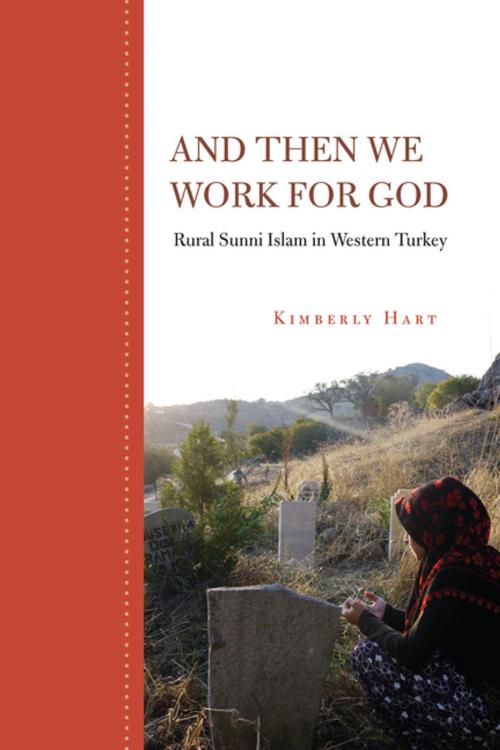And Then We Work for God
Rural Sunni Islam in Western Turkey
Nonfiction, Social & Cultural Studies, Social Science| Author: | Kimberly Hart | ISBN: | 9780804786683 |
| Publisher: | Stanford University Press | Publication: | July 17, 2013 |
| Imprint: | Stanford University Press | Language: | English |
| Author: | Kimberly Hart |
| ISBN: | 9780804786683 |
| Publisher: | Stanford University Press |
| Publication: | July 17, 2013 |
| Imprint: | Stanford University Press |
| Language: | English |
Turkey's contemporary struggles with Islam are often interpreted as a conflict between religion and secularism played out most obviously in the split between rural and urban populations. The reality, of course, is more complicated than the assumptions. Exploring religious expression in two villages, this book considers rural spiritual practices and describes a living, evolving Sunni Islam, influenced and transformed by local and national sources of religious orthodoxy. Drawing on a decade of research, Kimberly Hart shows how religion is not an abstract set of principles, but a complex set of practices. Sunni Islam structures individual lives through rituals—birth, circumcision, marriage, military service, death—and the expression of these traditions varies between villages. Hart delves into the question of why some choose to keep alive the past, while others want to face a future unburdened by local cultural practices. Her answer speaks to global transformations in Islam, to the push and pull between those who maintain a link to the past, even when these practices challenge orthodoxy, and those who want a purified global religion.
Turkey's contemporary struggles with Islam are often interpreted as a conflict between religion and secularism played out most obviously in the split between rural and urban populations. The reality, of course, is more complicated than the assumptions. Exploring religious expression in two villages, this book considers rural spiritual practices and describes a living, evolving Sunni Islam, influenced and transformed by local and national sources of religious orthodoxy. Drawing on a decade of research, Kimberly Hart shows how religion is not an abstract set of principles, but a complex set of practices. Sunni Islam structures individual lives through rituals—birth, circumcision, marriage, military service, death—and the expression of these traditions varies between villages. Hart delves into the question of why some choose to keep alive the past, while others want to face a future unburdened by local cultural practices. Her answer speaks to global transformations in Islam, to the push and pull between those who maintain a link to the past, even when these practices challenge orthodoxy, and those who want a purified global religion.















